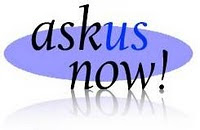Permaculture: A Designers' Manual by B.C. Mollison
Tyalgum, Australia : Tagari Publications, [1992], c1988.
Main Stacks: Call Number: S494.5.P47 M64 1992
Permaculture can briefly be described as an approach to ethical landscape design, with the goal of sustainability and self-sufficiency. Permaculture uses design principles from nature, and takes into account how indigenous people use the land; how water, fire and wind flow through the land; and how soil, water, vegetation, buildings and habitats can be managed in an enduring way. On the larger scale, the goal of permaculture is to create sustainable human settlements and institutions. Permaculture principles can, however, be implemented on any scale - anywhere from a small garden to industrial-scale agroforestry!
The essential text for Permaculture study is Bill Mollison's
Permaculture: A Designer's Manual. Although Mollison coined the term permaculture, the principles are based on the practices of sustainable cultures throughout history. The ethical aims of permaculture are care for the earth, care of people, and care of process (self-regulation of consumption and growth, and redistribution of surplus).
A favorite quote of mine from the text concisely summarizes the permaculture philosophy:
"The greatest change we need to make is from consumption to production, even if on a small scale, in our own garden. If only 10% of us do this, there is enough for everyone. Hence the futility of revolutionaries who have no gardens, who depend on the very system they attack, and who produce words and bullets, not food and shelter."
While Mollison's book is absolutely *fascinating*, it is a *highly detailed, very dense* 576 pages of illustrations, principles, and philosophical musings. Anyone interested in more approachable overview of permaculture may wish to check out:
Sustainable Revolution: Permaculture in Ecovillages, Urban Farms, and Communities Worldwide
by Juliana Birnbaum and Louis Fox
Berkeley, Calif. : North Atlantic Books, 2014
Main Stacks: Call Number: S494.5.P47 F69 2014
Both of these books are available for check out with your SWC photo ID card.
Review by Rachael Smithey, SWC Librarian



























